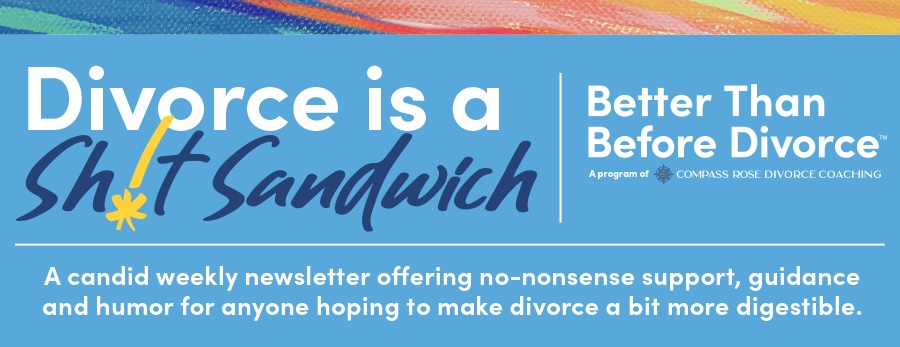
Welcome
To my newsletter,
Divorce is A Shit Sandwich
(Because it is, right?!)

Are You Digging in During Divorce? Compromise May Be One Question Away…
How do you find the right line between standing firm and setting boundaries, and knowing when and how to be flexible? 🧘 🤺
This is a question I get a lot!
The other thing I hear is this, “My ex doesn’t deserve…”
Sound familiar?!
But what if there was an entirely different question to help you figure out when compromise is warranted – one that looks at the situation from a completely different perspective that’s all about YOU, not your ex?? 🤔
This week’s blog post shares that big question and lots of insight about compromise.
Check it out here. 👈

Do you have a tough question? Ask away. I’ll find the right experts to weigh in and make sure you’re getting the input you need.
Question:
Last week I shared information on Spousal Debt. This week I’ll share a question I got about spousal income, specifically, the issue of overtime.
How does overtime get factored into my income since it’s not predictable or consistent?
Answer:
Again, I reached out to Brianna Beski, a Certified Divorce Financial Analyst for Raymond James based here In Colorado (where we are both physically located) for an answer to this question. Here’s what she shared:
The first question to ask about overtime is whether it is voluntary or mandatory.
- If overtime pay is the result of voluntary additional hours that typically does not apply towards income for the purposes of calculating maintenance.
- If the overtime is mandatory (eg a condition of staying employed) that is considered income for the purposes of this conversation.
According to Brianna, here are other typical examples of spousal income:
- Income from self employment commissions from sales and bonuses earned
- Dividends
- Capital gains
- Retirement benefits received
- Income from rent
- Income and distributions from trusts.
Most situations are nuanced so speaking to a divorce professional is an important way to make sure you are addressing the unique aspects of your divorce.
Here I’ll share some of the books, websites, podcasts and experts to help make your journey a little less shitty!
Another excellent Certified Divorce Financial Analyst I work with is Amy Mahlen Melander. Her blog this week addresses the topic of when and how best to bring in a CDFA and maximize the return on your time and money.
I am grateful to have partnered with Amy and attorney Diane Wozniak at the Colorado Bar Association’s Family Law Institute last month. Our presentation addressed the value of bringing the right neutral to your team, including a CDFA.
You can learn more about Amy at her website, and read her latest blog post here.
For more information about CDFAs, questions to ask, and a directory of local CDFAs, visit institutecdfa.com.


I am a corporate communications VP turned Certified Divorce Coach, and I created the Better Than Before Divorce™️ program for those early in the divorce process who want to reduce the impact of divorce on themselves and their children, minimize conflict and come out BETTER on the other side. Throughout my career I have worked to help executives, teams and individuals communicate succinctly, with clarity, intention, and impact, and I love using these skills to provide support and confidence to women and men tangled in the web of divorce.
My Better Than Before Divorce™️ clients benefit from my 25+ years of experience in crisis communications, branding and marketing, as well as my calm strength and commitment to tangible results. I am also a trained mediator, I’ve completed Colorado’s Collaborative Divorce Level I and II trainings, and I have a bachelor’s degree in psychology and an M.S. in Organizational Dynamics from the University of Pennsylvania.
I hope you found this information useful. Please share your feedback HERE anytime, and visit the rest my website, betterthanbeforedivorce.com, for more information on private coaching, or the Better Than Before Divorce™ online course.
